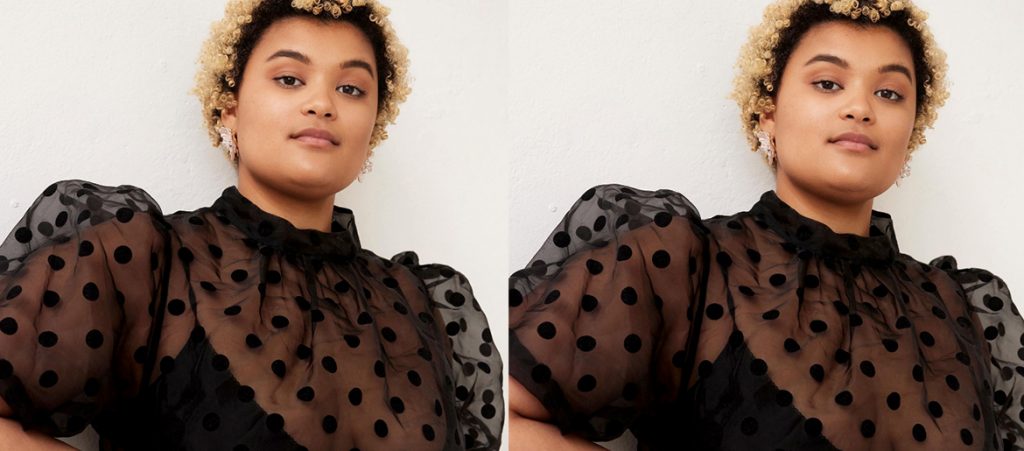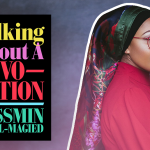We’ve come a long way since diverse characters in film, TV and theatre were only being used as the butt of a joke or the first character to be killed off. And there’s still a long way to go. How do we get to a place where authentic representation in entertainment media exists? It’s a question that Milo Harthill – actor and diversity advocate – will address as part when she speaks at the Being Seen on Screen: The Importance of Representation conference, hosted by two-time Academy Award-winning actor and advocate, Geena Davis at the Australian Centre for the Moving Image.
While the Being Seen on Screen conference will focus on the roles that those within the industry must play, we asked Milo about what audiences – that’s us! – can do to help move these much-needed changes along.

Zee Feed: The conference you’re hosting is all about the importance of representation in film, but why does on-screen representation actually matter?
Milo: I think representation in all spaces otherwise [we’re] leaving out a huge part of society in the content that [we] create. You know, I think that it’s taking a while. As the world, they get to a point where even ready to have conversations. And that’s because a huge set of ideas have been left out of the conversation. I think it’s important as well because people should be able to get into whatever careers they want to get into if they work hard and have the talent. But because nobody’s paved the way (I think people are beginning to pave the way now), it’s felt like it’s an inaccessible field to get into. People of colour, bigger-bodied people, disabled, Trans people have just been left out of the conversation and therefore, felt as though: ‘if you can’t see it, you can’t be it.’
There’s still a lot of ‘token’ representation in film and media that comes alongside these efforts. How can filmmakers get authentic representation right?
It’s about where you’re casting people. If half our cast is people of colour, half white, but all of the people of colour are playing villains or old people or the ‘wise magical Negro’, then maybe that’s not the representation that we quite want or is important in the moment.
The other day, I auditioned for a role – they wanted young people of colour to be playing this role and the lines were transphobic. And I was like, ‘Why?’ It’s also writers that need to be people of color, trans people, people, people from the group writing the material.
In a perfect world, what do you hope to see when it comes to representation on screen?
Intersectional representation and diversity. My ideal world is that everyone who wants to – everyone who has the talent and does the work – gets to be in these positions in theater, advertising, modeling, wherever. That they can feel like they are allowed to take up space in the job market, rather than being an afterthought, a side thought.
I was talking about it the other day, I feel like casting and film and TV want people to be ‘one thing’. So it’s like: we want to have a person who is a person of color, and then we want to have a fat person, but they need to be white — the only difference about them can be that they’re fat. I just invite casting, directing, writing departments to be more interesting than that.
It’s wild that people being multi-faceted can seem like such a out-there concept in the industry…
Literally! But it sells! You see the content that’s being pumped out at the moment. Stuff that is young and queer and interesting and has people that are funny and heartbreaking and insightful and, you know, using strengths that others people don’t have… that’s the content that does well.
Do you ever feel pressure to be a model minority and a role model of sorts, to be that positive representation in the arts and entertainment industry?
I know that I am viewed as a bit of an activist and advocate. But I would love to just make my silly little videos and be an actor, and come home and not have to keep talking about it. But until things change, it’s a part of my job that I have to keep calling things out, speaking up, and asking questions. In an ideal world, I just want to do my thing and go home.
White, thin-bodied, able-bodied people aren’t going to work thinking about the politics of their job and the way that they’re viewed within it because of their race and size. But that is a part of the job right now. It’s great that I can be that voice and that a couple people listen to me, but anyone who is viewed as a spokesperson can’t represent everyone. I can’t speak for other people of different ethnic, or cultural backgrounds — everybody’s lived experience is so specific and personal.
How do you deal with trolls or naysayers who tell you to stop talking about the changes needed and stop challenging the status quo?
Anti-depressants. Sleep. Water. I’m just a thick-skinned person. I try not to compare myself with people that have been born into more privilege than me, but I also don’t listen to people that aren’t educated in their privilege. I’m not going to take advice from someone who clearly doesn’t have a shred of compassion.
A lot of the time when I deal with the trolls I’m like, ‘Fuck, man, your life must be so sad’. Not in a mental health sense, not in a lack of privilege, but you’ve got everything going for you and yet you’re still taking this time out of your day to message me to kill myself because I’m a ‘fat N-word’. Like, girl, that must be rough for you. Just sad.
As viewers even though we desperately want to see better representation and more thoughtful stories on screen, sometimes we can feel a little helpless because we’re not involved in the filmmaking process or the industry – we can only respond to the project after it’s complete. How can audiences help push for better representation and diversity in film?
The audience has the power because it’s all made for the consumer. So when you see something that has good representation that you enjoyed, find the email of the producer that made it. Email Netflix or find the inquiry box and send a message. If you really liked the performance of an actor who is a person of colour – post about it, tell people about it!
I’m at a point where if someone doesn’t want to hire me because I’m speaking out, then I don’t care because I’d probably have a bad time on that project anyway. But if you’re not in the industry, you can say whatever the fuck you want. What are you going to lose by saying: ‘Hey, this show is all white’ or ‘this show has only skinny people and trying to say that it was diverse, can we address that?’
Also, think about where you’re putting your money. Unfortunately in this capitalist world, that is what drives everything. If you’re still going to plays that only have white, thin, able-bodied people in it, then you’re telling that producer: ‘This is what I like, keep doing this.’ There’s an all-white play, which is almost sold out, and I went to go see it — very boring. But then there are shows like & Juliet happening in Melbourne, and it is one of the best I’ve ever seen in my life. Why isn’t that selling out? That has all people of colour and it’s bloody good. Show them with your money!




Comments are closed.